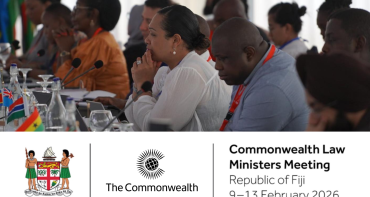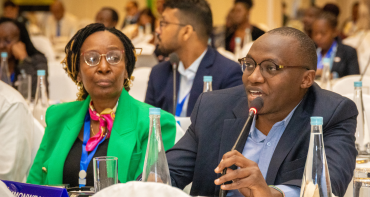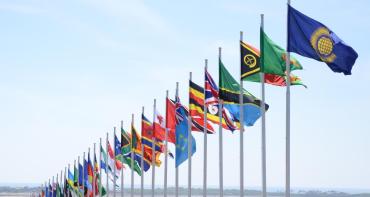At the UN Human Rights Council in Geneva, the Commonwealth and the Office of the High Commissioner for Human Rights jointly hosted a side event on ending child, early and forced marriage.

At the UN Human Rights Council in Geneva, the Commonwealth and the Office of the High Commissioner for Human Rights jointly hosted a side event on ending child, early and forced marriage. Child marriage is a harmful traditional practice that violates the rights of women and girls. Around 375 million women alive today were married or partnered before their 18th birthday.
In the Commonwealth, that amounts to 52 per cent of women aged more than 18 years of age. Approximately 8.8 million Commonwealth women are married as children every year. That adds up to 24,000 girls every day or 17 girls every minute.
Commonwealth leaders have made strong commitments to prevent and eliminate child marriage through successive Commonwealth Heads of Government Meetings – 2011, 2013 and 2015. The side event focused on the role of National Human Rights Institutions in achieving this target. NHRIs have been recognised as a key ally in ending Child Marriage in a report of the Office of the High Commissioner for Human Rights, presented to the Human Rights Council this week.
The Commonwealth Secretariat first acknowledged the role of NHRIs already in 2013 as an outcome of its Commonwealth Roundtable on Child, Early and Forced Marriage and facilitated the adoption of the Kigali Declaration in 2015. The Kigali Declaration represents a united stand on child marriage and sets out a framework of 17 actions that NHRIs can take forward to end the practice. Twenty human rights commissions are currently signatories and have implemented concrete actions to end child marriage.
The side event featured two NHRIs that have made a difference: those in Malawi and Northern Ireland.
Mr Justin Dzonzi, Chairperson of the Malawi NHRI, highlighted a landmark Constitutional amendment that bans child marriage in the country. He said: ‘The constitutional amendment was our greatest achievement, but achieving tangible social change by simply changing the law is not a realistic means of ending an entrenched social practice like child marriage. Rooting out child marriage is a project, not an event. Everyone needs to participate. To be effective we must reach the hardest to reach first.’
Professor Les Allamby, Chief Commissioner of the Northern Ireland Human Rights Commission, highlighted research on child marriage in vulnerable traveller communities in Northern Ireland that is linked to a proposal to amend the age of marriage legislation in the UK Parliament. He said ‘The battle has still to be won but child marriage is not going unchallenged around the world. There is a need for political and civic leadership, as well as grassroots actions. Act locally and think globally. The Commonwealth Kigali Declaration is an example of this working in practice’.
The side event marks the deepening collaboration between the Office of the High Commissioner for Human Rights and the Commonwealth on the issue of child marriage.
The UN’s Deputy High Commissioner for Human Rights, Kate Gilmore, stated: “Child Marriage is a thief, a vandal and a liar. It is a thief of girls’ fundamental dignity, it is a vandal of all a girl could achieve, a derailment of all she could be. It is a liar falsely promising girls and their families protection and safety.”
The Deputy Director of the UN Population Fund in Geneva, Alfonso Barragues, said: “The Kigali Declaration, the Amman Declaration and UN resolutions provide an enormous platform for National Human Rights Institutions to bring together all stakeholders at the national level in dialogue to agree on policies to address child marriage.”
Closing the event, the Head of Human Rights at the Commonwealth, Karen McKenzie, stated: “It is imperative that we transcend agreements at the multilateral level into durable domestic implementation that impacts the lives of the people we serve. We need to work smarter and pool our resources in areas where we have joint expertise – supporting the efforts of national human rights institutions to end child marriage, is one such thematic human rights issue.”



